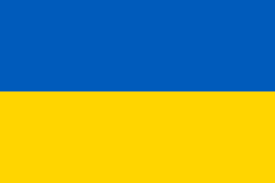Back in 1992, in the absurdly optimistic interval that followed the unexpectedly sudden collapse of the Soviet Union and the de facto end of the Cold War, Francis Fukuyama famously wrote The End of History and the Last Man, which argued, in a rather Hegelian way, that history had run its course and reached its final form. This resonated with the then increasingly widely held (even if erroneous) belief that the only remaining alternative for nations in the post–Cold War world would be some version of American or European capitalist, liberal democracy. In contrast, others argued that, after the aberration of the Cold War, world politics and international relations would revert to something like the traditional, normal, non-ideological, interest-based conflicts between nation-states. Meanwhile, borrowing a phrase already used by Albert Camus, Bernard Lewis, and others, Samuel Huntington wrote about a "clash of civilizations" (which became the title first of a 1993 Foreign affairs article and then a 1996 book The Clash of Civilizations and the Remaking of World Order). Huntington's analysis controversially hypothesized a world of several competing cultural identities or civilizations rivaling one another in a new post-colonial world. Contrary to the ideology of secularization still so dominant intellectually, Huntington hypothesized how cultural and religious identities would increasingly shape post-cold War conflicts. His argument reflected (and benefited from), for example, what was being experienced in Europe after the breakup of Yugoslavia and even before that the islamic Revolution in Iran. While limited in its applicability and problematic in some of its assumptions, this theory of increasing civilizational conflict did serve as a sort of counter to the Western-centric civilizational ideology that asserted the inherent universality American and European political and economic values, implicitly minimizing the popularity and resilience of other cultural models.
My own thinking has largely been a pragmatic variation on a realist model, which starts with the existence of modern nation-states with specific geopolitical interests, but one which recognizes that ideological and cultural factors and religious and moral values play an important part in a nation's self-understanding and become, in effect, a real dimension of its "interests." Thus, during the Cold War, one did not need to start from communist ideology to understand the Soviet Union's policy in guaranteeing for itself a sphere of influence in Eastern Europe. Russia having been many times invaded from the West, most recently in the 19th century by Napoleon and in the 20th century twice by Germany, it was easy to understand the Soviet Union's security interest in controlling eastern Europe and its motivation in maintaining the division of Germany and a strong Soviet presence in what became the Warsaw pact. On the other hand, the "Finlandization" solution was confined to Finland and Austria, while explicitly communist governments and the ideological apparatus that accompanied communism were imposed on those other Warsaw pact countries. And there can be no doubt that the way both Stalin and subsequent Soviet leaders looked at and interpreted U.S. and NATO behavior was intensely colored both by traditional imperial and Orthodox Russian distrust of the "Latin" West and a distinctive Marxist-Leninist interpretation of the motivation and behavior of capitalist states. If that last factor is less salient now, it may still survive subconsciously among leaders like Putin who were socialized under Marxist-Leninist ideology, while the more traditional imperial and older Orthodox distrust of the West may be even more salient now that it is no longer ideologically subordinated to communism.
All of this is, I think, relevant to understanding the current conflict between Russia and Ukraine, which remains rooted in a certain Russian interpretation of its national interests within the modern nation-state system, clearly colored by and filtered through its inherited imperial and Orthodox cultural self-understanding and interpretation of the outside world.
Meanwhile, while it is certainly true that Ukrainian national resistance and NATO support for Ukraine can be explained in part in realist terms, that is a limited understanding of the revived appreciation of the perennial cultural conflict between Russia and the West. (Remember Tocqueville!)
It was NATO more than the EU, and the Cold War need for common defense against Soviet expansion more than the shared experience of capitalist, liberal democracy that held the western alliance together so effectively while the Soviet Union was still a real threat. The rapid loss of common civilizational clarity among Western societies, both in North American and Europe, after the end of the Cold War was obviously a reflection of that. Now that the threat is somewhat more clear again, the Western world seems to be recovering (at least for a time) some of tis civilizational clarity. That China, India, and the Muslim nations seem relatively reluctant to get on board likewise reflects not just those countries' different geopolitical situations, but the different cultural and philosophical filters through which they interpret themselves and the world.
Western civilization predates capitalist, liberal democracy and includes a complex of cultural and moral values and religious interpretations, some of which compete with rather than reinforce capitalism and liberal democracy, but which nonetheless remain significant still. That said, all those occasionally competing components have come to coexist within a successful Western paradigm of political pluralism which Russian history leaves little room for, in contrast to Ukraine's historically more Western orientation.
So one collateral consequence of this horribly tragic war may be a healthy renewal of Western nations' shared self-understanding in all its varied complexity - less as a mission to impose capitalist, liberal democracy on others who may not presently want it and more as a renewed appreciation of the abiding strength found in the historical evolution of Western European and American political and cultural values, which recent circumstances have conspired to undermine at home as well as abroad.
Слава Україні!
(Glory to Ukraine!)


No comments:
Post a Comment